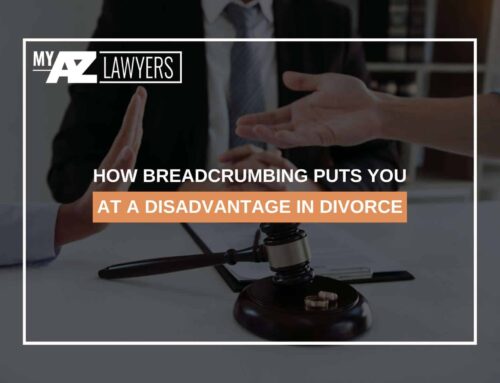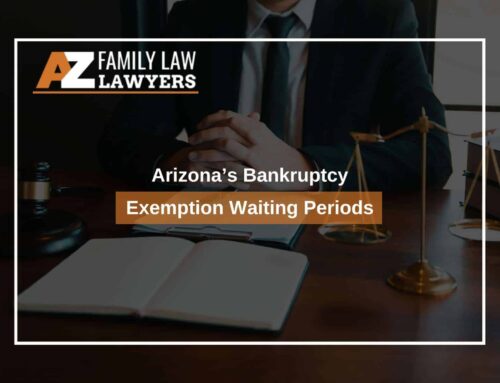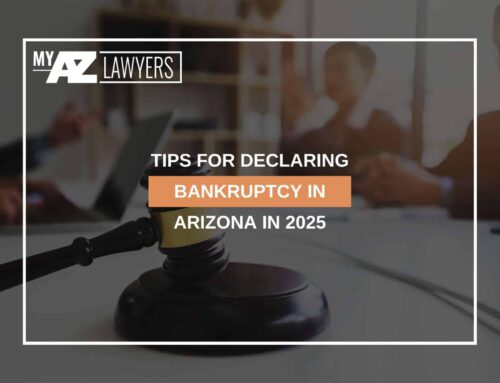Table Of Contents
What Are Arizona’s Criminal Statutes Of Limitations?
How Arizona’s Statutes Of Limitations Work, Key Exceptions & What They Mean For Criminal Charges & Investigations
Criminal charges in Arizona have deadlines called statutes of limitations, which limit how long prosecutors can file charges after an alleged crime. Once this time expires, the state usually cannot pursue the case. These limits vary by crime severity. Some, like murder, have no time limit while others must be charged within a few years.
In this article, we’ll explain how Arizona’s statutes of limitations work, the exceptions that can pause or extend them, and what this means if you’re facing criminal charges or an investigation.

Arizona Revised Statutes § 13-107: The Legal Framework
Arizona criminal statutes of limitations are governed by A.R.S. § 13-107. This statute outlines the specific time limits for initiating criminal prosecution and lays out exceptions that can pause or extend those limits.
For example, if a criminal case is filed but later dismissed, the state has six months to refile the charges. Failure to do so within that period means the case is barred unless an exception applies.
No Statute Of Limitations For The Most Serious Crimes
Some crimes are so severe that Arizona law allows them to be prosecuted at any time, regardless of how much time has passed since the offense occurred. These crimes include:
- Homicide and conspiracy to commit homicide.
- Sexual offenses that are classified as Class 2 felonies.
- Violent sexual assault (under A.R.S. § 13-1423).
- Sexual exploitation of children (under Chapter 35.1).
- Terrorism-related offenses (A.R.S. § 13-2308.1).
- Unlawful use of biological or radiological agents (A.R.S. § 13-2308.3).
- Child sex trafficking (A.R.S. § 13-3212).
- Misuse of public funds or falsification of public records.
If a person is suspected of one of these crimes, the state can initiate prosecution at any point, no matter how many years have passed. For anyone facing such serious allegations, it’s essential to consult a criminal defense lawyer in Gilbert who understands the complexities and can provide aggressive representation.
Felony Offenses: Seven-Year Statute Of Limitations
For most felony offenses in Arizona (Classes 2 through 6), the prosecution must file charges within seven years of the alleged crime. This category encompasses a wide range of offenses, from aggravated assault to theft and drug-related crimes.
Class 6 felonies are the least severe, while Class 2 felonies are just one step below capital crimes. Even though they have a defined window for prosecution, felonies should still be treated with urgency due to their potential consequences, including significant prison time.
Misdemeanors & Petty Offenses: Shorter Timeframes
Lesser offenses are subject to shorter statutes of limitations:
- Misdemeanors: 1 year.
- Petty offenses: 6 months.
These cases often involve less complex legal proceedings but can still have serious consequences like fines, community service, or short jail terms. Even with shorter timelines, it’s crucial to act quickly, especially if you intend to challenge the charges or seek a dismissal.
Exceptions That Can Pause The Clock
There are several scenarios where the statute of limitations may be “tolled,” or temporarily paused. These exceptions allow the state more time to bring charges, depending on the situation. According to A.R.S. § 13-107, the statute of limitations does not run when:
- The accused is absent from Arizona.
- The accused is hiding to avoid prosecution.
- The suspect’s identity is unknown in serious offenses.
Serious offenses under A.R.S. § 13-706—such as first-degree murder, aggravated assault, sexual assault, kidnapping, armed robbery, and child molestation—have no statute of limitations until the perpetrator’s identity is known. In these complex cases, consulting an experienced criminal defense lawyer in Scottsdale is essential to explore all legal options and protect your rights fully.
Can Statutes Of Limitations Be Used As a Defense?
While the statute of limitations can serve as a powerful legal defense, especially in older or improperly filed cases, it is not always a silver bullet. In many cases, other legal strategies must be deployed alongside it.
If you’re charged with a serious crime that doesn’t fall under a statute of limitations, your defense must focus on other legal angles such as evidence admissibility, constitutional violations, or plea negotiations.
Effective Defense Strategies For Older Criminal Cases In Arizona
When dealing with older criminal cases, unique challenges arise that require specialized defense strategies. Understanding these key areas can make a critical difference in the outcome of your case.
Challenging The Admissibility Of Evidence
Evidence from older cases may be unreliable or degraded due to the passage of time or outdated collection methods. For example:
- Forensic samples tested years ago might need retesting using modern techniques.
- Eyewitness testimony from long ago can be inconsistent or flawed.
For example, an experienced criminal defense lawyer in Mesa can identify weaknesses in evidence and file the necessary challenges to exclude or minimize its impact.
Investigating Fourth Amendment Violations
The Fourth Amendment protects against unlawful searches and seizures. Police must have:
- Reasonable suspicion to detain someone.
- Probable cause to arrest or collect evidence.
If evidence was obtained illegally, your attorney can move to suppress it, which can severely weaken the prosecution’s case and even lead to reduced charges or dismissal.
Negotiating For Reduced Charges
In some cases, negotiating with the prosecution to lower the charges is the best option. Benefits include:
- Changing the statute of limitations to a more favorable timeframe.
- Reducing potential penalties and consequences.
For instance, a skilled criminal defense lawyer in Scottsdale can evaluate the strength of the evidence and negotiate terms that best protect your interests.
The Importance Of Choosing The Right Defense Attorney
Facing criminal charges in Arizona can be life-changing. That’s why selecting the right defense attorney services is critical. Choosing private counsel instead of relying solely on a public defender can have a significant impact on the outcome of your case, especially when serious charges are involved.
While many public defenders are skilled and dedicated, there are key limitations to consider:
- Heavy caseloads: Public defenders often handle dozens of cases at once, limiting the time and attention they can devote to each client.
- Fewer resources: Unlike private law firms, public defenders may lack access to expert witnesses, private investigators, or advanced forensic tools.
- Limited availability: Communication is crucial during a legal battle, and public defenders may not always be readily accessible due to their workload.
In contrast, a private criminal defense attorney with experience in complex legal matters can provide:
- Personalized attention to the unique details of your case.
- Aggressive representation at every stage of the legal process.
- In-depth knowledge of Arizona’s legal system and established relationships within the local courts.
- Customized defense strategies tailored to your circumstances and criminal history.
With your future on the line, investing in the right legal representation can make all the difference.
Contact My AZ Lawyers: Experienced Arizona Criminal Defense Attorneys Ready To Help
If you or a loved one is being investigated or charged with a crime in Arizona, don’t leave your future to chance. At My AZ Lawyers, an experienced criminal defense lawyer in Arizona will handle your case, covering a wide range of criminal matters including serious felonies and DUIs.
We know how to challenge the evidence, explore defenses like the statute of limitations, and build a solid strategy tailored to your case. Contact us today!
Arizona Offices:
Mesa Location:
1731 West Baseline Rd., Suite #100
Mesa, AZ 85202
Office: (480) 448-9800
Email: info@myazlawyers.com
Website: https://myazlawyers.com/
Phoenix Location:
343 West Roosevelt, Suite #100
Phoenix, AZ 85003
Office: (602) 609-7000
Glendale Location:
20325 N 51st Avenue Suite #134, Building 5
Glendale, AZ 85308
Office: (602) 509-0955
Tucson Location:
2 East Congress St., Suite #900-6A
Tucson, AZ 85701
Office: (520) 441-1450
Avondale Location:
12725 W. Indian School Rd., Ste E, #101
Avondale, AZ 85392
Office: (623) 469-6603














